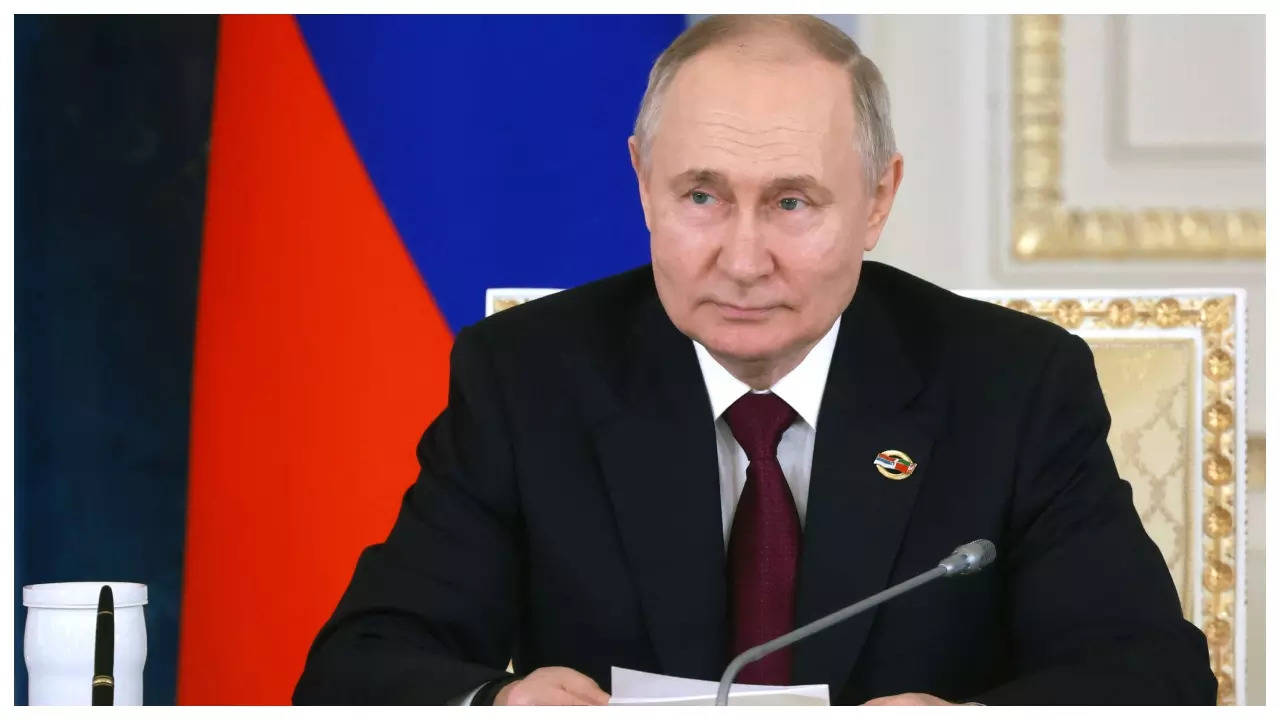[ad_1]
NEW DELHI: Russian President Vladimir Putin has disclosed that his earnings over the past six years have not exceeded $1 million, as per financial statements released by Russia’s Central Election Commission (CEC). The records indicate that Putin’s income from 2018 to 2024 amounted to approximately 67.6 million rubles, equivalent to around $753,000. This sum encompasses his presidential salary, earnings from bank deposits, a military pension, and proceeds from property sales, a Newsweek report said.
In comparison, the President of the United States receives an annual salary of $400,000. The disclosure of Putin’s financial details coincides with the approach of Russia’s presidential election in March. Putin, who has led the country as president from 2000 to 2008 and from 2012 onwards, with an intervening period as prime minister, is anticipated to secure his sixth term. However, there have been allegations from Western observers regarding the manipulation of election outcomes in Russia.
According to the data Putin submitted to the CEC, he possesses savings totaling 54.5 million rubles (approximately $606,000) across ten bank accounts. His vehicle collection includes two vintage Soviet Union cars (GAZ M-21s) from the 1960s, a Russian-made 4X4 from 2009, and a 1987 camping trailer. Additionally, Putin owns an apartment and a garage in St. Petersburg and another apartment in Moscow. Not included in the list are other properties believed to be associated with Putin, such as a summer house in Sochi, a residence on the Black Sea coast known as “Putin’s Palace,” and a luxurious estate near the Finnish border, which was recently documented.
On the same day that Putin’s financial records were made public, his prospects for the 2024 election were bolstered by the withdrawal of two competitors. Sergei Baburin of the Russian All-People’s Union party ended his campaign and endorsed Putin, emphasizing the need for unity among the Russian populace during challenging times. The Democratic Party of Russia also announced that its candidate, Irina Sviridova, did not gather the required 100,000 endorsement signatures to qualify for the March ballot, leading the party to support Putin.
Despite these developments, several other presidential candidates remain in the race, including Boris Nadezhdin, a critic of the war in Ukraine, who has recently gained international attention.
Nadezhdin, a municipal council member in Russia, has rapidly gained prominence by pledging to cease the hostilities in Ukraine if he triumphs over President Vladimir Putin in the upcoming March elections.
The 60-year-old’s appeals for halting the military engagement have mobilized numerous Russians nationwide, keen to endorse his candidacy by signing up for his electoral campaign.
However, his rising popularity also casts a spotlight on the extent of tolerance from the Kremlin, especially during a period when voicing opposition to the conflict carries significant political risks.
(With inputs from agencies)
In comparison, the President of the United States receives an annual salary of $400,000. The disclosure of Putin’s financial details coincides with the approach of Russia’s presidential election in March. Putin, who has led the country as president from 2000 to 2008 and from 2012 onwards, with an intervening period as prime minister, is anticipated to secure his sixth term. However, there have been allegations from Western observers regarding the manipulation of election outcomes in Russia.
According to the data Putin submitted to the CEC, he possesses savings totaling 54.5 million rubles (approximately $606,000) across ten bank accounts. His vehicle collection includes two vintage Soviet Union cars (GAZ M-21s) from the 1960s, a Russian-made 4X4 from 2009, and a 1987 camping trailer. Additionally, Putin owns an apartment and a garage in St. Petersburg and another apartment in Moscow. Not included in the list are other properties believed to be associated with Putin, such as a summer house in Sochi, a residence on the Black Sea coast known as “Putin’s Palace,” and a luxurious estate near the Finnish border, which was recently documented.
On the same day that Putin’s financial records were made public, his prospects for the 2024 election were bolstered by the withdrawal of two competitors. Sergei Baburin of the Russian All-People’s Union party ended his campaign and endorsed Putin, emphasizing the need for unity among the Russian populace during challenging times. The Democratic Party of Russia also announced that its candidate, Irina Sviridova, did not gather the required 100,000 endorsement signatures to qualify for the March ballot, leading the party to support Putin.
Despite these developments, several other presidential candidates remain in the race, including Boris Nadezhdin, a critic of the war in Ukraine, who has recently gained international attention.
Nadezhdin, a municipal council member in Russia, has rapidly gained prominence by pledging to cease the hostilities in Ukraine if he triumphs over President Vladimir Putin in the upcoming March elections.
The 60-year-old’s appeals for halting the military engagement have mobilized numerous Russians nationwide, keen to endorse his candidacy by signing up for his electoral campaign.
However, his rising popularity also casts a spotlight on the extent of tolerance from the Kremlin, especially during a period when voicing opposition to the conflict carries significant political risks.
(With inputs from agencies)
[ad_2]
Source link


